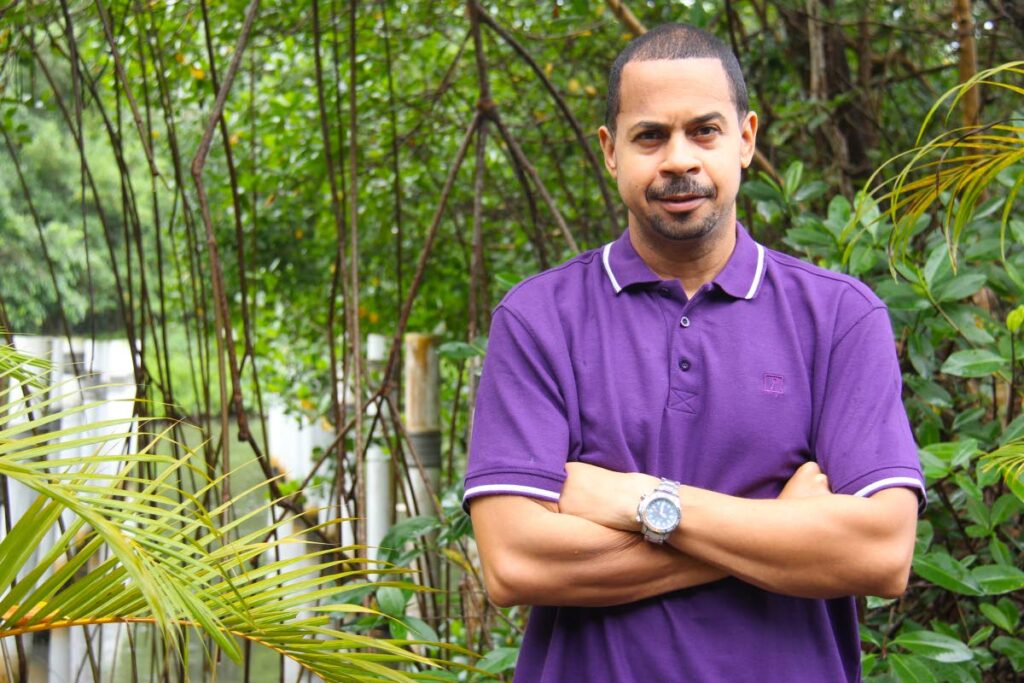WASA: Stink and dutty

Paolo Kernahan
"I COULD do without the internet, I could do without electricity. I could get by without cable – but I can't do without water."
That's a Facebook post from one of WASA's customers last week; it's a sentiment many likely share. The unwashed masses turned to the interwebs to commiserate and join together in a throaty chorus of effin' and jeffin'.
An estimated 250,000 citizens were left high and dry last week.
For the management at WASA and government officials with no idea what that looks like on the ground, that's thousands of people who couldn't cook, clean, bathe or flush toilets. That's thousands of people whose productivity was thrown off; businesses were disrupted and costs incurred during the service disruption. Workers who couldn't get paid because projects were dead in the water without a supply of water.
By the looks of the responses to the authority's meagre press updates on the water disruption, which spanned several days, apoplexy among members of the public seemed like it might spark outright insurrection.
Citizens behaved "stink and dutty" on social media, on account of their being stink and dutty. You step into the shower and look up only to have the shower head look back down at you as if to say, "What? I ain't have nuttin' for you. Better powder up yuhself and go to work."
What's troubling is that, by all accounts, we aren't out of the woods yet.
The "fix," according to WASA, is temporary. The failure that occurred on one of the authority's 48-inch pipelines was said to be still leaking even after the crisis had subsided. That's why, for some communities, water hadn't returned at full pressure. The estimated time for completion of the comprehensive repair work was said to be between two and four days, as of last week Thursday.
The irony of hundreds of thousands of citizens suffering without water while the Government of TT feted regional leaders in an orgy of pointless spending and chatter certainly poured salt in the wound. Heralding 50 years of Caricom was very much a remote indulgence for ordinary citizens already coping with sky-high food prices, rampant crime and punishing traffic in their daily commute – and added to that, dry taps and echoing water tanks (for those who can afford such contingencies).
The agony of the public was also compounded by several communications misfires – releases posted to WASA's Facebook page were, for the most part, late to the game, terse and contained ever-shifting timelines for the completion of repair work and restoration of service. This was owed, according to WASA, to the complex nature of the repairs.
Acting CEO Kelvin Romaine, at a news conference held at the site, demurred on giving timelines for restoration of service after the first timeline given elapsed without relief for the public.
Incidentally, Minister of Public Utilities Marvin Gonzales, who was meant to be at that news conference, was a no-show. Members of the public complained that during the peak of the crisis, the line minister was conspicuously silent.
He eventually found his voice to commend the authority for its "handling" of the emergency.
Understandably, equipment and infrastructure will fail from time to time. The authority, though, is well aware that much of the water treatment and distribution apparatus in this country is aging, decrepit and unserviceable.
Officials spoke about the pipeline that ruptured (a relic of the original construction of the plant in 1978) as though it was some mysterious archaeological discovery buried by a long-extinct alien civilisation that left no decipherable instructions for its maintenance.
The failed surge line, as it was described, is at the Caroni water treatment plant – not some distant tendril of the authority's distribution network.
Given the authority's own acknowledgment of the advanced age of considerable aspects of its water treatment and delivery systems the question has to be asked: what is WASA's regime for ongoing inspection, maintenance and upgrading of crucial plant and equipment?
The authority has been around long enough to be more adept at crisis management and communications – certainly more so than was demonstrated last week. With the countless billions that have flowed through WASA (a fair portion of which has been lost to leakage as well), customers should be getting a more reliable supply of water and a better quality of customer service.

Comments
"WASA: Stink and dutty"